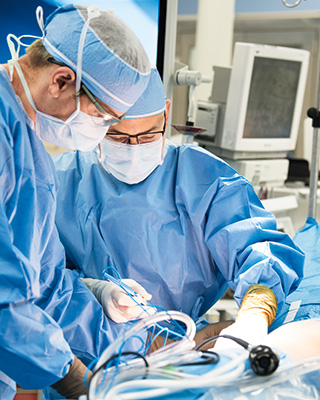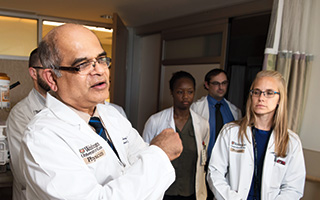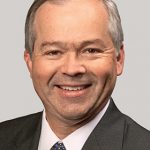Kidney transplant focus shifts to living donors

Kevin Hamilton, 59, underwent a kidney transplant at Barnes-Jewish Hospital in March 2016 through a national paired kidney exchange after tests determined that his wife, Barbara, 58, was an incompatible donor. In this “kidney swap,” Kevin and Barbara exchanged kidneys with another donor/recipient pair: Kevin received a kidney from a donor in South Carolina, and Barbara’s went to a recipient in Oregon.
Kevin, who had chronic kidney disease, was two months away from needing dialysis and likely would have waited three to five years for a kidney transplant from a deceased donor. With his new kidney, Kevin is now doing well and is out swinging a golf club again. Barbara also is faring well and is glad she was able to help her husband.
Success stories such as this are playing out more and more often at Barnes-Jewish, as the transplant program employs multiple ways to find living donors.
“We have really changed our culture to focus on living donation,” says Kidney Transplant Director Jason Wellen, MD, MBA. Their efforts include encouraging patients to find their own living donor. “If you don’t have a living donor, help us find someone to be your champion. Find an outgoing church member or sibling. Let them ask for you.”
The effort is worthwhile, says William Chapman, MD, section chief and the Eugene M. Bricker Professor of Surgery. Kidneys from living donors are generally better quality, and circumventing the long wait for a deceased donor may allow patients to avoid dialysis, which carries its own risks.
If blood work determines that a potential living donor is incompatible, the recipient has several options: a transplant from an ABO-incompatible donor, in which the recipient receives medical treatment before and after transplant to lower the risk of organ rejection; a paired exchange through a Barnes-Jewish database; or a national paired exchange.
The kidney transplant program also has stepped up efforts to make the kidney donor process more donor friendly. Barbara recalls the experience as “wonderful.” The program has since expanded the number of clinic days per week, gathered input from donors about their donation experiences, and developed an early recovery after surgery protocol that improves pain management.
Highlights

WASHINGTON UNIVERSITY’S TRANSPLANT FELLOWSHIP is the first transplant program in the country to offer early specialization(ESP). General Surgery Chief Resident Vijay Subramanian, MD, trained for 6 months on the transplant service as a PGY-4 resident and will add six months of transplant training this year, then complete the fellowship in one year instead of two. Washington University was among the earliest in the country to offer dual certification in general surgery and either vascular or cardiothoracic surgery. A 10-year study in the Journal of the American College of Surgeons of ESP training at Washington University and five other institutions concludes that the approach is successful and appropriate for any surgical subspecialty.
ADOLESCENT TRANSPLANT PATIENTS have the highest rate of noncompliance in following care guidelines, studies show. Doctors and care coordinators see them monthly as children and adolescents, but as adults, they will have fewer appointments and must take greater responsibility. Liver transplant director M.B. Majella Doyle, MD, MBA, and kidney transplant director Jason Wellen, MD, MBA, have worked with quality managers at St. Louis Children’s Hospital and Barnes-Jewish Hospital to improve the transition of abdominal transplant patients from adolescent to adult care. Helpful steps include having the adult care coordinator participate in pediatric planning meetings and performing a neuro-psychiatric exam before transition.
IN ADDITION TO TRANSPLANTS, liver transplant surgeons perform a wide range of liver surgeries. Newly recruited surgeon Adeel Khan, MD, MPH, performs minimally invasive surgery and will train other transplant surgeons in the technique, which could be used to harvest the organ in live-donor liver transplants, among other procedures.
Noted accomplishment

WILLIAM CHAPMAN, MD, chief of the Section of Transplant Surgery and the Eugene M. Bricker Professor of Surgery, received the 2017 Francis Moore Excellence in Mentorship in the Field of Transplantation Award from the American Society of Transplant Surgeons. The award acknowledges established surgeons for their stewardship of fellowship trainees and junior faculty.